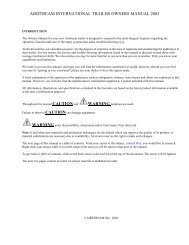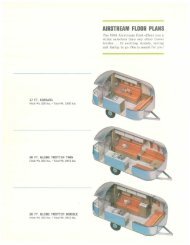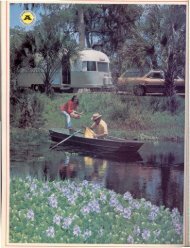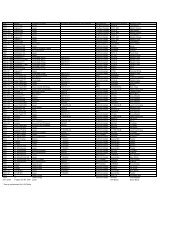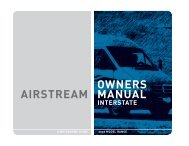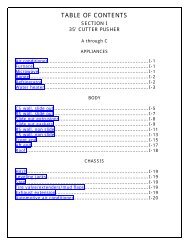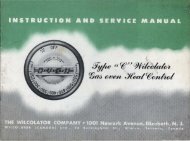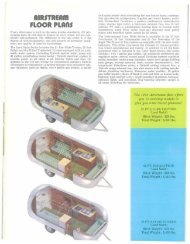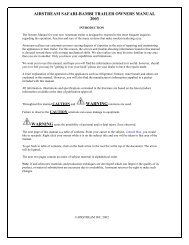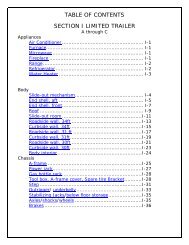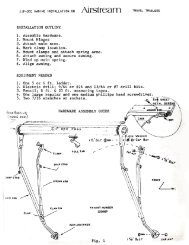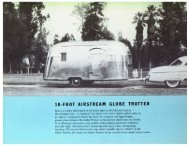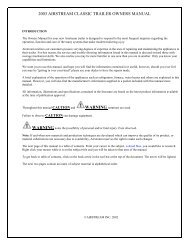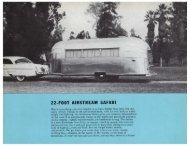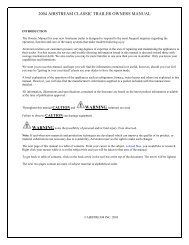Classic - Airstream
Classic - Airstream
Classic - Airstream
You also want an ePaper? Increase the reach of your titles
YUMPU automatically turns print PDFs into web optimized ePapers that Google loves.
INTRODUCTION<br />
Mold (See page C-9)<br />
There are mold and mold spores throughout the indoor and outdoor environment.<br />
There is no practical way to eliminate all mold and mold spores in the indoor<br />
environment; the way to control indoor mold growth is to control moisture.<br />
Towing and Weight Distribution (See page B-1)<br />
Weight distribution is an important factor when loading your travel trailer. A<br />
recreational vehicle with the cargo distributed properly will result in efficient,<br />
trouble-free towing. Be sure to follow the instructions in this manual.<br />
Generator Safety<br />
Do not operate the generator in an enclosed building or in a partly enclosed<br />
area such as a garage. Nor should the generator be operated while sleeping.<br />
Be sure to follow all instructions and warnings in this manual.<br />
Lug Nut Torquing (See page D-16)<br />
Being sure wheel mounting nuts (lug nuts) on trailer wheels are tight and<br />
properly torqued is an important responsibility that trailer owners and users<br />
need to be familiar with and practice. Inadequate and/or inappropriate wheel<br />
nut torque (tightness) is a major reason that lug nuts loosen in service. Loose<br />
lug nuts can rapidly lead to a wheel separation with potentially serious safety<br />
consequences. Be sure to follow the instructions in this manual.<br />
WHEEL SEPARATION CAN OCCUR<br />
On first trip, tighten wheel nuts at start of first trip and at 10, 25, and 50<br />
miles. Thereafter check wheel nut torque: Before each trip, Following<br />
winter storage, Following excessive braking, or whenever a wheel is<br />
removed and replaced.<br />
See torque pattern on page D-16 for tightening sequence and follow torque<br />
specifications on page I-2.<br />
Appliances and Equipment (See page H-1)<br />
The appliances (stove, refrigerator, etc.) and equipment (hot water heater,<br />
furnace generator, etc.) typically operate on Propane gas. Propane gas is<br />
flammable and is contained under high pressure. Improper use may result<br />
in a fire and/or explosion. Be sure to follow all instructions and warnings in<br />
this manual as well as the specific owners’ manuals of the appliances and<br />
equipment.



